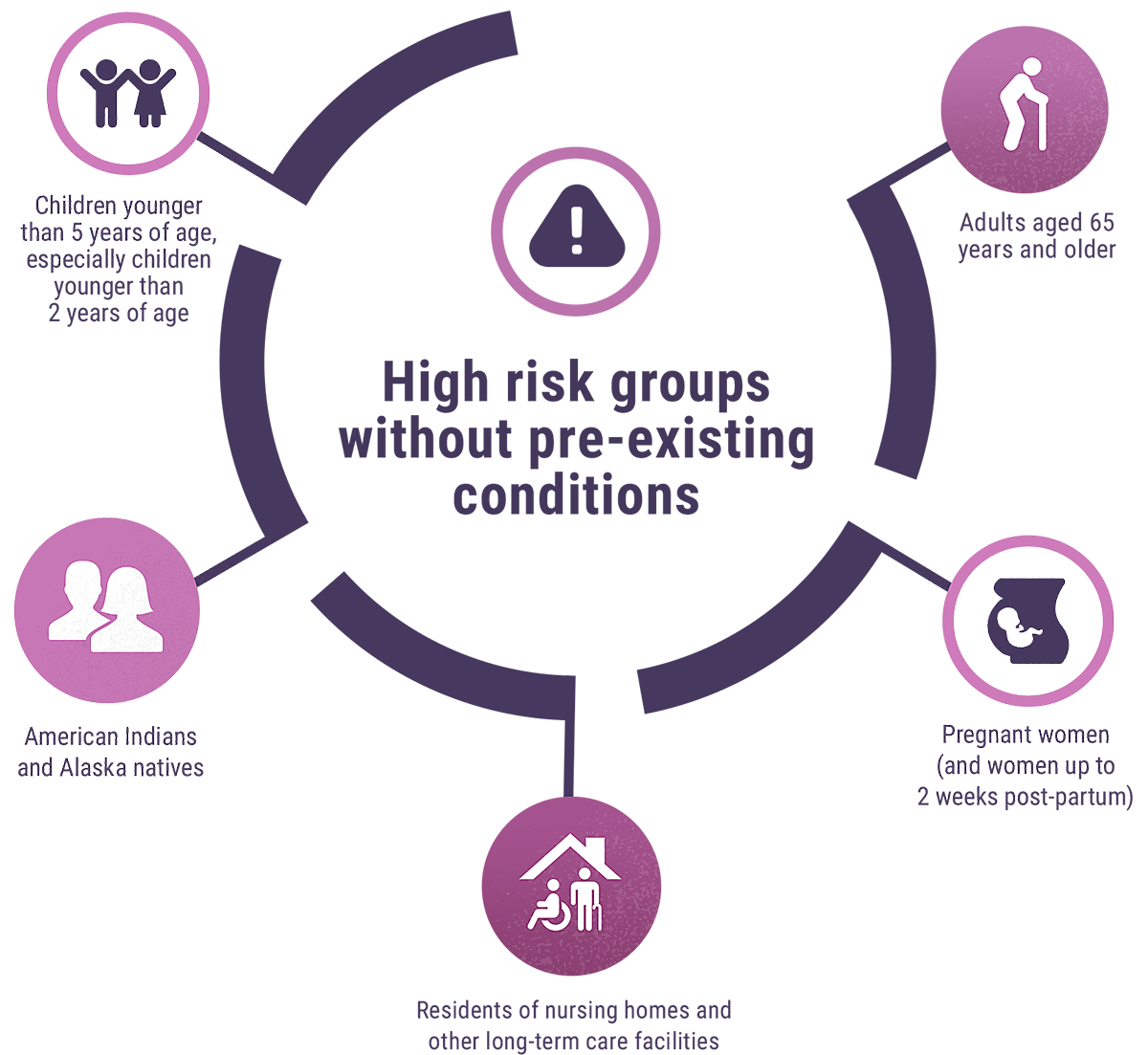Who is considered high risk?

Like COVID-19, anybody can get the flu. But some people are at a higher risk of developing complications than others.1,2
For the flu specifically, these people include:2–4




Complications of the flu can be serious, and in the worst cases, life-threatening.2,5
With antivirals, you can lower the risk of these complications developing.6
References
- WebMD. Who gets COVID-19? Available from: https://www.webmd.com/lung/qa/who-gets-covid19. Last accessed: October 2020.
- Centers for Disease Control and Prevention (CDC). People at High Risk of Developing Serious Flu-Related Complications. Available from: www.cdc.gov/flu/about/disease/high_risk.htm. Last accessed: October 2020.
- First Nations Health Authority. Influenza (flu) information. Available from: https://www.fnha.ca/what-we-do/communicable-disease-control/influenza-information. Last accessed: October 2020.
- NSW Government. Aboriginal people and influenza. Available from: https://www.health.nsw.gov.au/Infectious/Influenza/Pages/aboriginal_people_and_influenza.aspx. Last accessed: October 2020.
- Mertz D et al. BMJ 2013; 347: f5061.
- Allen UD et al. Can J Infect Dis Med Microbiol 2006; 17(5): 273–284.
